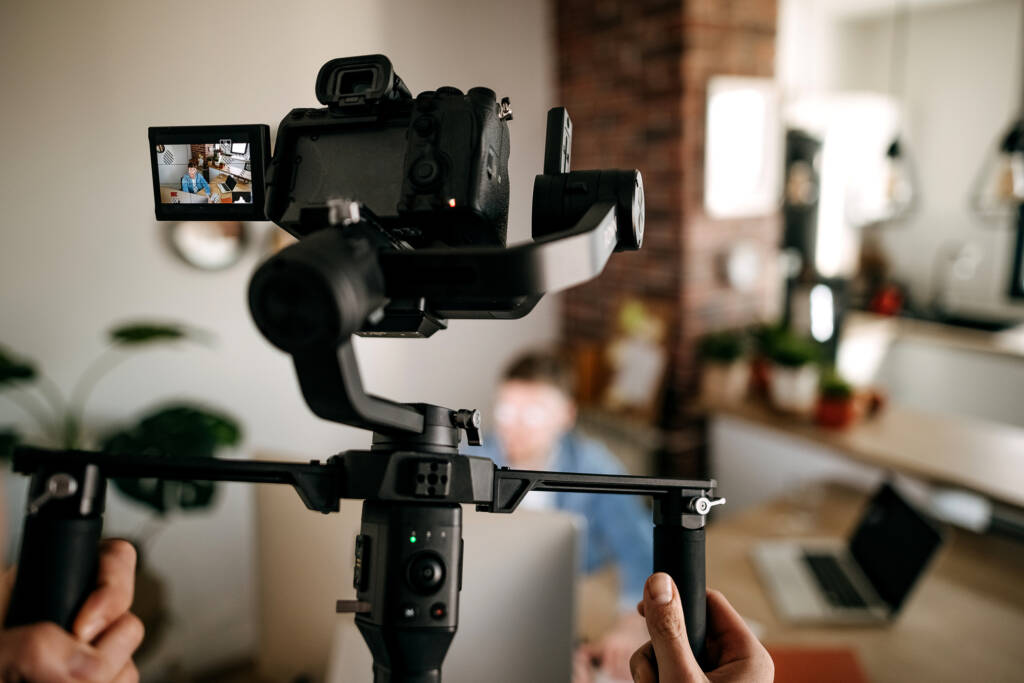
Film Production

Projects allow students to demonstrate competence and understanding of concepts and skills by completing a career-related task. For example, the assignment might be to create a mural, a package design, a speech, a film review, or a movie set – you name it! These creative projects are about applying your learning acquired through in-depth research to real-world career tasks.
Each competency will be addressed through a project that is based on a real-life career task. Here are the careers you will explore: Screenwriter, Storyboard Artist, Camera Operator, and Film Editor.
Projects
Screenwriter
You will take on the role of a staff screenwriter for an up-and-coming film studio. You are tasked with creating a screenplay for a 10-20-minute short film, that will be submitted for jury evaluation for entrance into the Sundance Film Festival.
Storyboard Artist
You will take on the role of a storyboard artist for the up-and-coming film production company, tasked with creating a storyboard for the short film screenplay that was just approved by your film company.
Camera Operator
You will take on the role of lead camera operator for the up-and-coming film production company, tasked with filming a short film that the company will submit to the jury for entry into the Sundance Film Festival.
Competencies
Scriptwriting
Students will demonstrate an understanding of the production phase in filmmaking by creating and implementing a video production schedule and checklist and applying lighting and audio techniques.
Pre-Production
Students will demonstrate an understanding of the pre-production phase in filmmaking by creating a storyboard and formulating effective camera shots.
Production
Students will demonstrate an understanding of the production phase in filmmaking by creating and implementing a video production schedule and checklist and applying lighting and audio techniques.
Post-Production
Students will demonstrate an understanding of the post-production phase in filmmaking by explaining film editing techniques, explaining the film revision process, and applying revision and editing to their own film.
Experiences allow you to explore a career field you’re curious about while mastering competencies for school credit. Through experiential learning, you will learn skills and apply them to tasks you would complete as part of a career rather than completing traditional assessments like essays or tests. During your Experience, you’ll work with a professional in the field to support your learning whom we call a “mentor.” You’ll earn a badge for your accomplishments to share on social media and higher education platforms, or with colleges, potential employers, peers, and colleagues to display your qualifications.
Here’s how Experiences work:
- Each competency you work on is addressed through a separate deliverable predetermined by you and your instructor.
- Guided learning for each module consists of research and/or work with a professional in the field. Your instructor will coach you through this process.
- Each module culminates in a final demonstration of understanding, which includes a deliverable and a discussion-based assessment with your instructor.
- Here’s an example:
Let’s say you’re curious about a career in healthcare. You decide you’d like to learn about this career area, make a professional connection, earn a badge, and meet competencies for your 9th-grade English requirement. While enrolled in English 1 Experiences, you conduct research to better understand language and structure in writing. Then you may work with an Occupational Therapist to help apply your writing skills to the creation of an informational video about adaptive equipment for patients. The video aims to advise family members of patients regarding the use of accommodations and equipment to help patients perform daily tasks. Now you’ve earned the Language and Structure in Writing competency! This is just one example of the many ways Experiences can bridge competencies to careers.
Obtaining a Mentor: Prior to enrollment, please have an idea for a mentor in mind. We have partnered with hundreds of mentors you can work with during your Experience, who you can find in our Career Mentor Catalog here. Or, you may consult with our counseling department by emailing [email protected] for help in identifying one.
*A parent/guardian permission form and background check of the mentor are both required to work with mentors without parental supervision.
Competencies
Scriptwriting
Students will demonstrate an understanding of the production phase in filmmaking by creating and implementing a video production schedule and checklist and applying lighting and audio techniques.
Pre-Production
Students will demonstrate an understanding of the pre-production phase in filmmaking by creating a storyboard and formulating effective camera shots.
Production
Students will demonstrate an understanding of the production phase in filmmaking by creating and implementing a video production schedule and checklist and applying lighting and audio techniques.
Post-Production
Students will demonstrate an understanding of the post-production phase in filmmaking by explaining film editing techniques, explaining the film revision process, and applying revision and editing to their own film.

